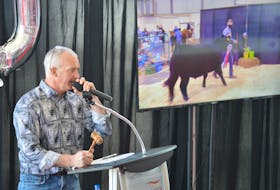We write in response to the John Palmer letter, (Islanders not living on unceded land, Jan. 23). Mr. Palmer’s letter contains serious inaccuracies which must be corrected – inaccuracies in both history and law.
Case law provides a more accurate definition of “cede” — to yield or grant typically by treaty — than that stated by Mr. Palmer. And, as a matter of fact, land surrender did not happen in Mi’kma’ki.
The land in Mi’kma’ki, including Prince Edward Island, was never ceded. As correctly pointed out by Professor Peter McKenna in his response article (Re: Islanders not living on unceded land, Feb. 5), the Treaty of Paris was signed between the British and French – not the Mi’kmaq. As Professor McKenna also points out, the only treaties signed by the Mi’kmaq were peace and friendship treaties. The British and the Mi’kmaq entered into these treaties to end any hostilities and encourage co-operation between the Crown and the Mi’kmaq. The Supreme Court of Canada has held that the peace and friendship treaties in this region did not cede land. Therefore, despite Mr. Palmer’s inaccurate claim, it is a matter of both fact and law that the Mi’kmaq of this region, including the Mi’kmaq of Epekwitk/Prince Edward Island have never ceded, yielded, or granted their land to anyone – therefore, it is unceded land.
Mr. Palmer also references the Canadian Constitution, however, he fails to mention section 35 of the Constitution Act, 1982, which states, “The existing aboriginal and treaty rights of the aboriginal peoples of Canada are hereby recognized and affirmed”. It is important to understand that the highest form of Aboriginal right is Aboriginal title.
While that corrects the erroneous information conveyed by Mr. Palmer, we will take the opportunity to provide other information which is important for all Islanders to know. Mi’kmaq oral history, talks about P.E.I. being covered in ice and containing all the animals and fish the ancestors of the Mi’kmaq would need to survive. Archaeological campsites containing fragments of fish, seal, bear, beaver and stone tools, dating from 300 to 10,000 years ago, have been found in a number of places throughout P.E.I. Shell middens, containing oysters, clams and other shellfish, were first remarked upon by P.E.I.’s British settlers in the early 1800s.
Both Mi'kmaq oral history and archeological records clearly indicate that the ancestors of the Mi'kmaq have been here in Mi'kma’ki, including P.E.I., for at least 10,000 years. Before European contact, the Mi'kmaq people based their lives on the accessibility of different foods at different times of the year, returning again and again each season to the same area. In spring, there were large gatherings along lower rivers; in summer, smaller gatherings along the bays and coasts. Autumn brought large gatherings of Mi'kmaq families along upper rivers and; in winter, small family-type groups went inland to hunt game. This cyclical round of land and resource use is still carried out today. The Mi’kmaq are the descendants and successors of the historic rights bearing community that exclusively occupied all of the lands and waters of what is now known as the Province of Prince Edward Island, both at the time of first contact with Europeans and at the assertion of sovereignty.
There is archeological, historical and Indigenous evidence that the Mi’kmaq occupation of P.E.I. was both permanent and exclusive. The Supreme Court of Canada in Tsilhqot’in Nation v. British Columbia, which was the first case in Canada to make a declaration of Aboriginal title, held that exclusive occupation of this nature establishes Aboriginal title. It is upon this legal principle that the Mi’kmaq assertion of Aboriginal title is granted.
The recent move for Island organizations to acknowledge that the land upon which they are gathering is the traditional unceded land of the Epekwitk Mi’kmaq is an appropriate and much-appreciated step on the path to reconciliation. In addition to the problematic inaccuracies Mr. Palmer has communicated, his letter encourages Islanders to step away from our shared path to reconciliation. We are confident that this is not what Islanders want.
Chief Darlene Bernard,
Lennox Island First Nation
Chief Junior Gould,
Abegweit First Nation
On behalf of the Epekwitk Assembly of Councils









